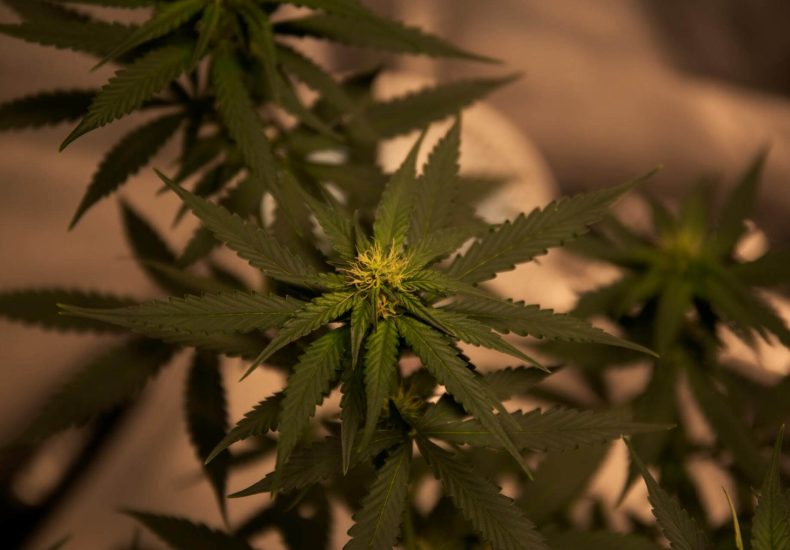 Cannabis
Cannabis
Table of Contents
The state of Thai cannabis regulations is always a point of contention. In the global landscape of cannabis legalization, Thailand has emerged as a progressive player, redefining its stance on cannabis regulations in recent years.
From once being known for its stringent anti-drug laws to becoming a pioneer in Southeast Asia for medical cannabis legalization, Thailand’s journey has been remarkable. As we step into 2024, it’s imperative to grasp the intricacies of Thai cannabis regulations and how they shape the future of the industry in the country.

Thai Cannabis Regulations: Historical Context
Thailand’s relationship with cannabis has been complex and deeply rooted in cultural, medicinal, and legal frameworks. Historically, cannabis was widely used in traditional Thai medicine before being criminalized in the 1930s under pressure from international treaties. However, recognizing its therapeutic potential and economic benefits, Thailand embarked on a transformative journey towards legalization in recent years.
In 2018, Thailand made headlines by becoming the first Southeast Asian country to legalize medical cannabis. This landmark decision was driven by growing global acceptance of cannabis for medicinal purposes and acknowledgment of its potential to alleviate various medical conditions. Under the 2018 legislation, medical cannabis was legalized for research and medicinal use, marking a significant departure from the strict anti-drug policies of the past. It’s important to know the current Thai cannabis regulations.
Regulatory Framework for Thai Cannabis Regulations
The regulatory framework governing cannabis in Thailand is primarily overseen by the Ministry of Public Health and the Food and Drug Administration (FDA). To ensure safe and responsible usage, strict regulations are in place regarding cultivation, production, distribution, and consumption of cannabis and cannabis-derived products. Licensed producers must adhere to stringent quality control standards and comply with licensing requirements to operate legally.
Since the initial legalization of medical cannabis, Thailand has continued to expand its cannabis regulations. In 2022, the government took a progressive step by decriminalizing recreational cannabis possession for personal use, signaling a shift towards a more liberal approach to cannabis policy. While cultivation and distribution for recreational purposes remain illegal, the decriminalization of possession reflects evolving attitudes towards cannabis use in Thai society.
Economic Opportunities
The legalization of medical cannabis has unlocked a wealth of economic opportunities for Thailand. The country’s favorable climate and agricultural expertise position it as a potential global leader in cannabis cultivation and production. Furthermore, the burgeoning cannabis industry has the potential to generate significant revenue, create employment opportunities, and stimulate economic growth, particularly in rural areas where agriculture plays a crucial role.
Despite the progress made in cannabis legalization, Thailand still faces several challenges and concerns. One of the primary concerns is ensuring equitable access to medical cannabis, particularly for low-income patients who may struggle to afford treatment. Additionally, there are concerns regarding the potential for exploitation by large corporations and foreign investors, which could threaten the interests of local farmers and communities.
Public Awareness and Education
A key aspect of the Thai cannabis regulations is the emphasis on public awareness and education. Efforts are underway to educate the public about the potential benefits and risks of cannabis use, dispel misconceptions, and promote responsible consumption. Public health campaigns, educational programs, and community outreach initiatives play a crucial role in fostering a better understanding of cannabis and its implications for individuals and society.
Thailand’s legalization of medical cannabis has also catalyzed research and innovation in the field of cannabis science and medicine. Universities, research institutions, and private companies are conducting studies to explore the therapeutic potential of cannabis and develop new treatments for various medical conditions. This research not only contributes to the advancement of medical science but also enhances Thailand’s reputation as a hub for cannabis research and innovation.

International Collaboration
Thailand’s progressive approach to cannabis regulation has not gone unnoticed on the global stage. The country has actively engaged in international collaborations and partnerships to exchange knowledge, expertise, and best practices in cannabis regulation and research. By participating in global initiatives, Thailand aims to leverage international support and expertise to further develop its cannabis industry and contribute to the advancement of global cannabis policy.
Emerging Trends and Future Outlook
Looking ahead, several emerging trends and developments are shaping the future of Thai cannabis regulations. One notable trend is the increasing popularity of hemp-derived products, including CBD oils, cosmetics, and dietary supplements. As awareness of the potential health and wellness benefits of CBD grows, there is a growing demand for hemp-derived products in both domestic and international markets.
Furthermore, the legalization of hemp cultivation in Thailand presents new opportunities for farmers and entrepreneurs to capitalize on the growing market for hemp-based products. With its versatility and sustainability, hemp has the potential to become a lucrative crop for Thai farmers and contribute to the country’s agricultural diversification efforts.
More info on the industry…
Moreover, as the global cannabis industry continues to evolve, Thailand is well-positioned to leverage its unique strengths and competitive advantages to become a key player in the international cannabis market. By fostering innovation, supporting research and development, and maintaining a conducive regulatory environment, Thailand can unlock the full potential of its cannabis industry and reap the benefits of this burgeoning market.
The future of Thai cannabis regulations is filled with promise and potential. By embracing emerging trends, fostering innovation, and remaining committed to responsible regulation, Thailand can position itself as a leading destination for cannabis cultivation, production, and research in the years to come.
Thai Cannabis Regulations in 2024
As we navigate the evolving landscape of Thai cannabis regulations in 2024, it is evident that the country has made significant strides towards embracing the potential of cannabis for medicinal, economic, and social purposes. While challenges remain, Thailand’s commitment to progressive reform and responsible regulation bodes well for the future of the cannabis industry in the country.
With continued collaboration, innovation, and public engagement, Thailand is poised to emerge as a leading player in the global cannabis market, setting an example for other nations in the region and beyond. Thai cannabis regulations are evolving, so it’s important that you keep an eye on the changes.


